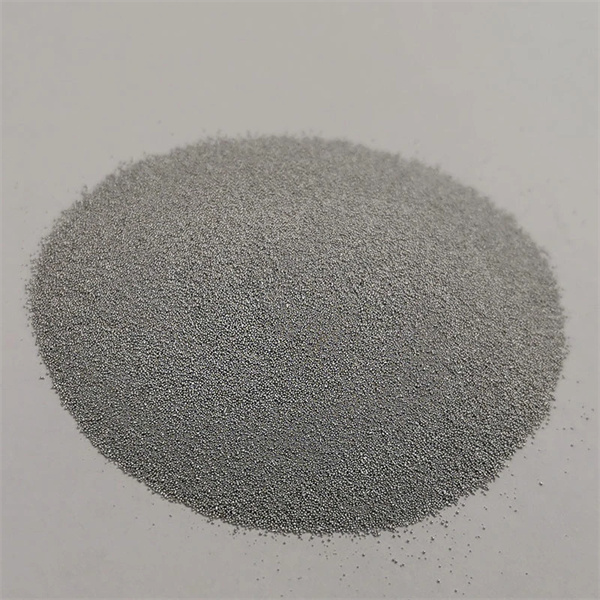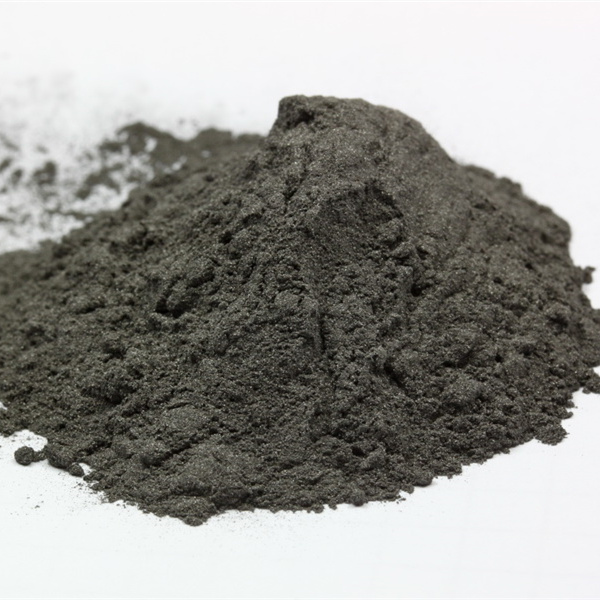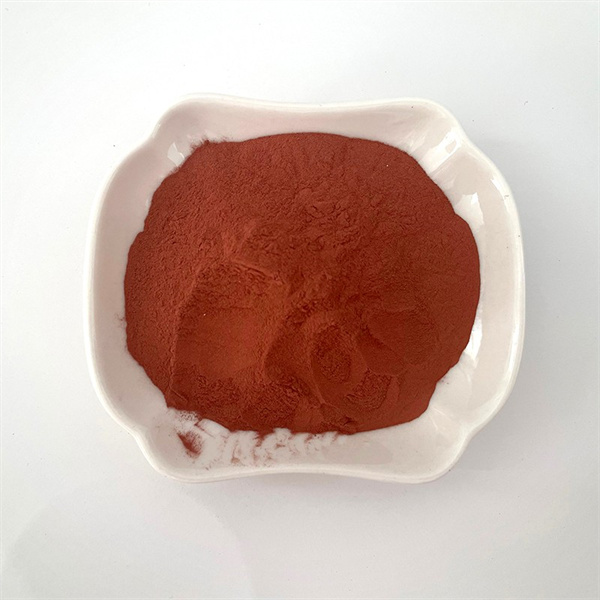钛合金粉 由于具有高强度重量比、耐腐蚀性和生物相容性等优异性能,钛合金粉是一种重要的材料,广泛应用于许多行业。本指南全面介绍了钛合金粉末的类型、特点、应用、规格、供应商、安装、操作、维护、如何选择供应商、优点和缺点以及常见问题。
钛合金粉概述
钛合金粉末是指含有钛以及铝、钒、铁和钼等其他合金元素的粉末状钛基金属材料。
钛合金粉末的一些主要特征:
- 高强度重量比
- 耐腐蚀性
- 耐热性
- 生物相容性和无毒性
- 非磁性
- 低导热性和导电性
钛合金粉被广泛应用于航空航天、汽车、医疗、化工、船舶、运动器材和发电等行业。最常见的钛合金是 Ti-6Al-4V、Ti-6Al-4V ELI 和 Ti-3Al-2.5V。
与铸锭冶金相比,粉末冶金生产方法具有更好的微观结构和机械性能。通过金属注射成型、热等静压、快速成型和粉末锻造等方法,钛合金粉末可用于制造近净成形部件。

钛合金粉末的种类
根据合金元素和冶金加工工艺的不同,钛合金粉有多种类型。
| 类型 | 合金成分 | 主要特点 |
|---|---|---|
| 钛-6Al-4V | 6% 铝,4% 钒 | 最常见的钛合金,具有出色的强度、硬度和耐腐蚀性 |
| Ti-6Al-4V ELI | 6% 铝、4% 钒、低间隙 | 提高延展性和断裂韧性 |
| Ti-3Al-2.5V | 3% 铝,2.5% 钒 | 优异的抗蠕变性,用于喷气发动机 |
| Ti-10V-2Fe-3Al | 10% 钒、2% 铁、3% 铝 | 高强度、高硬度、耐磨损 |
| Ti-15V-3Cr-3Al-3Sn | 15% 钒、3% 铬、3% 铝、3% 锡 | 良好的冷成型性,用于紧固件 |
| Ti-13V-11Cr-3Al | 13% 钒、11% 铬、3% 铝 | 抗氧化性,用于喷气发动机的高温部分 |
| 钛-15Mo-5Zr-3Al | 15% 钼、5% 锆、3% 铝 | 优异的耐腐蚀性,用于化工厂 |
| Ti-35.5Nb-5.7Ta-7.3Zr-0.7O | 铌、钽、锆、氧 | 模量低,生物相容性好,适用于植入物 |
钛合金粉的应用和用途
钛合金粉末因其有益的特性而在各行各业得到广泛应用。一些主要应用包括
| 行业 | 应用 |
|---|---|
| 航空航天 | 飞机发动机部件、机身、液压系统、紧固件、短舱 |
| 汽车 | 连杆、阀门、弹簧、紧固件、悬挂部件 |
| 医疗 | 整形外科和牙科植入物、手术器械 |
| 化学 | 热交换器、管道、阀门、泵 |
| 海事 | 螺旋桨、轴、海水淡化厂、海上钻井平台 |
| 发电 | 蒸汽轮机和燃气轮机叶片、热交换器 |
| 体育器材 | 高尔夫球杆、网球拍、自行车、曲棍球杆 |
| 石油化工 | 裂解器、分离器、冷凝器、石油钻井平台 |
一些主要的使用优势
- 高比强度,减轻重量
- 耐腐蚀,使用寿命长
- 医疗植入物的生物相容性
- 耐高温应用
- 无磁性,适用于敏感应用
钛合金粉的规格
钛合金粉末有各种尺寸范围、形状和纯度级别,并可根据应用要求进行定制。
| 规格 | 详细信息 |
|---|---|
| 尺寸范围 | 10 - 150 微米 |
| 粒子形状 | 球形、角度、混合 |
| 纯净 | 商业纯品(CP),合金级 |
| 生产方法 | 气体雾化、等离子旋转电极工艺、氢化物-酸酐 |
| 粒径分布 | 可根据筛分情况定制 |
| 流动性 | 球形粉末可提高流动性 |
| 表观密度 | 2.5 - 4.5 克/立方厘米 |
| 水龙头密度 | 理论密度高达 75% |
一些重要的钛合金牌号及其特性:
| 合金 | 屈服强度(兆帕) | 拉伸强度(兆帕) | 伸长(%) |
|---|---|---|---|
| 钛-6Al-4V | 880 | 950 | 10 |
| Ti-6Al-4V ELI | 825 | 900 | 15 |
| Ti-3Al-2.5V | 900 | 950 | 8 |
钛合金粉末的成分、粒度、形状、密度、流动性和微观结构可根据要求定制。

钛合金粉供应商和定价
钛合金粉末的一些主要全球供应商包括
| 供应商 | 地点 | 价格范围 |
|---|---|---|
| 阿梅泰克 | 美国 | 每公斤 $50 - $120 |
| AP&C | 加拿大 | 每公斤 $55 - $150 |
| TLS 技术 | 德国 | 每公斤 $45 - $130 |
| 中国石油天然气集团公司 | 中国 | 每公斤 $40 - $100 |
| 高比钢铁 | 日本 | 每公斤 $60 - $140 |
| SLM 解决方案 | 印度 | 每公斤 $30 - $90 |
价格范围取决于
- 合金成分
- 纯度水平
- 颗粒大小和分布
- 使用的生产工艺
- 订购数量
- 其他粉末特征
批量订单价格优惠。可按高价定制。
安装钛合金粉末设备
安装处理钛合金粉末的设备需要考虑的主要方面:
| 参数 | 详细信息 |
|---|---|
| 设计 | 最好采用封闭式系统,以防暴露 |
| 通风 | 确保充分通风以清除微尘 |
| 防爆 | 使用惰性气体覆盖,避免火源 |
| 危险 | 考虑火灾、爆炸和健康危害 |
| 安全 | 人员防护设备、自动化系统 |
| 存储 | 惰性气体环境,温度控制 |
| 材料处理 | 专用粉末输送和计量系统 |
关键设计因素:
- 尽量减少氧气含量,防止爆炸
- 消除火源和静电积聚
- 溢出和泄漏防护系统
- 符合人体工程学的填充和清空装置
- 适用于耐粉末磨损的材料
钛合金粉末设备的操作和维护
| 活动 | 说明 |
|---|---|
| 填充 | 可控惰性气体吹扫,粉末填充速度慢 |
| 运行 | 按照 SOP 进行参数监测和控制 |
| 检查 | 检查粉末质量、设备密封性和泄漏密封性 |
| 维护 | 定期检查、更换磨损部件、泄漏检查 |
| 家政服务 | 经常清洗以清除积粉 |
| 安全 | 遵守钛粉处理的标准预防措施 |
| 培训 | 确保人员具备安全操作能力 |
主要操作指南:
- 始终保持惰性气体环境
- 防止氧气侵入超过安全限值
- 按照 SOP 进行参数控制
- 监控压力、温度和流量
- 经常检查是否有渗漏
- 确保充分通风
- 进行火花测试以检查接地
选择钛合金粉供应商
选择钛合金粉末供应商时应考虑的关键因素:
| 标准 | 考虑因素 |
|---|---|
| 粉末质量 | 成分、纯度、粒度分布、微观结构 |
| 技术专长 | 合金知识、定制能力、测试设施 |
| 制造工艺 | 首选气体雾化,以保证质量和一致性 |
| 认证 | ISO、行业特定认证表明质量体系 |
| 研发能力 | 先进合金的开发和粉末特性分析 |
| 价格 | 具有竞争力的价格,批量订购可享受折扣 |
| 准备时间 | 如期交付的能力 |
| 客户服务 | 对询问和技术支持的响应 |
| 地点 | 距离和物流成本影响 |
在大宗采购前进行审核和抽样试验。审查质量认证和是否符合标准。优先考虑在钛合金粉末制造方面拥有强大技术专长的供应商。
钛合金粉的优缺点
| 优点 | 缺点 |
|---|---|
| 高强度重量比 | 与钢相比价格昂贵 |
| 卓越的耐腐蚀性 | 反应性和易燃性危险 |
| 耐高温 | 刚度比钢低 |
| 无毒、生物兼容 | 难以加工和制造 |
| 非磁性,适用于敏感应用 | 某些合金的供应有限 |
| 良好的抗疲劳和抗裂纹生长性能 | 复杂的制造工艺 |
钛合金的优点使其适用于航空航天、医疗和化学工业中性能高于成本的关键应用。但在可加工性、可用性和成本方面的局限性限制了其在更多普通应用中的使用。

常见问题
问:钛合金粉末中使用的主要合金元素是什么?
答:最常见的合金元素是铝、钒、铁、钼、锆、锡、铌和钽。这些元素可提高强度、耐腐蚀性、抗蠕变性、硬度和其他性能。
问:在 AM 中,钛合金粉末常用的粒度范围是什么?
答:在使用钛合金粉末进行增材制造时,通常使用 15-45 微米的粒度范围。为了获得更好的烧结和零件性能,最好使用 100 微米以下的细颗粒。
问:处理钛粉时需要采取哪些预防措施?
答: 使用惰性气体毯、防爆设备、接地以防止静电积聚、避开所有火源、为人员提供安全装备,并遵守火灾和静电放电预防程序。
问:Ti-6Al-4V 合金粉末有哪些常见用途?
答:Ti-6Al-4V 因其强度、耐腐蚀性和生物相容性,被广泛应用于机身部件、发动机部件、紧固件等航空航天部件和关节置换部件等医疗植入物。
问:生产钛合金粉末的方法有哪些?
答:常见的生产方法包括气体雾化法、等离子旋转电极法、氢化物-酸酐法和电解法。气体雾化法是应用最广泛的方法。
问:钛合金粉末如何用于增材制造?
答:钛粉通常用于选择性激光烧结、电子束熔化和直接金属激光烧结等增材制造技术,以生产复杂、轻质的航空航天和医疗应用部件。
问:使用粉末冶金技术生产钛合金有哪些优势?
答:粉末冶金可产生精细、均匀的微观结构,具有优异的机械性能。粉末冶金可以利用金属注射成型等技术制造复杂的网状部件。
问:用于增材制造的 Ti-6Al-4V 合金粉末的典型价格范围是多少?
答:对于增材制造应用,根据数量和质量,尺寸为 15 至 45 微米的 Ti-6Al-4V 粉末每公斤的成本在 $80 至 $150 之间。
问:在某些应用中,钛合金粉末有哪些替代品?
答:铝、镁和镍合金等替代材料成本较低,但高温强度较差。不锈钢的制造能力更强。在某些情况下,复合材料的强度可以与之媲美。
问:钛合金粉末技术的最新趋势是什么?
答:喷气发动机用γ-TiAl 等钛铝化物的开发、低成本钛粉生产方法以及 Ti-1023 和 Ti-5553 等新型合金是钛合金粉末技术的一些新趋势。
结论
钛合金粉末集强度、耐腐蚀性和生物相容性等特性于一身,对航空航天、医疗、化工和其他行业的苛刻应用至关重要。本指南总结了钛合金粉末的各种类型、制造方法、规格、价格、优缺点和常见问题,以帮助工程师、设计师和技术采购团队有效利用这种先进材料。随着不断研究出更新的合金和更低成本的粉末生产技术,预计钛合金粉末的应用和使用在未来将迅速增长。


